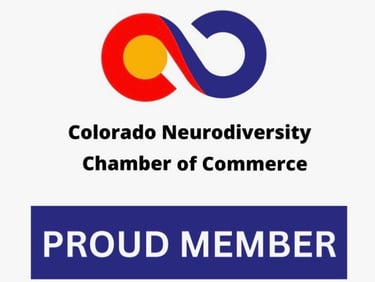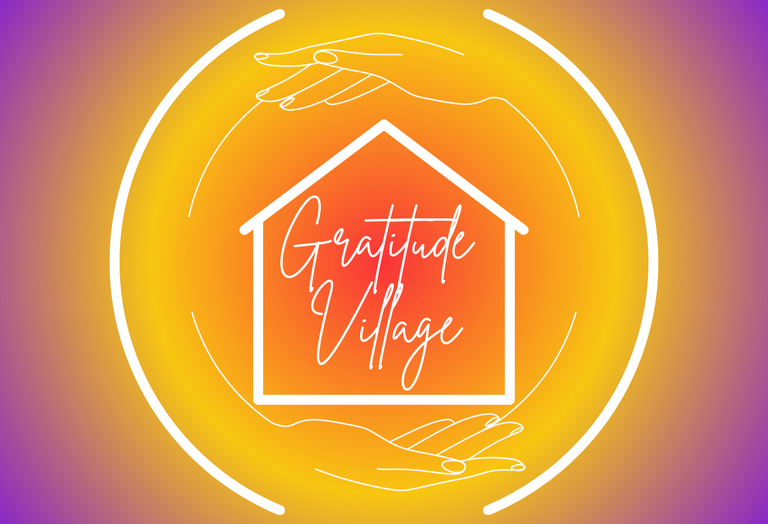Zoom Info Session Thursday February 26, 2026 5:30-6:30PM Mountain Time
Cohousing Supports Both Introverts and Extroverts
Discover how cohousing in Colorado is designed to support both introverts and extroverts through thoughtful architecture, flexible participation, and intentional community design. At Gratitude Village Colorado, our multigenerational, Net Zero cohousing neighborhood balances privacy and connection so everyone can thrive—whether you recharge in solitude or among friends. Learn how community living, sustainability, and belonging come together to create a lifestyle that honors every personality and strengthens the social fabric of modern life.
Gratitude Village
11/9/20254 min read


At first glance, the word “cohousing” might make an introvert’s shoulders tense just a little. The idea of shared meals, spontaneous gatherings and close neighbors can sound like a lot of togetherness. But what surprises many people—both introverts and extroverts alike—is how well cohousing communities are actually designed to meet everyone’s social needs. In fact, cohousing thrives precisely because it balances connection and privacy in ways most traditional neighborhoods don’t.
Connection Without Compromise
In cohousing, connection is intentional—but not intrusive. Each household has its own fully private home, complete with kitchen, bathroom(s) and personal living spaces. You decide when and how you want to engage. You can join a shared dinner one evening and spend the next enjoying solitude on your private back patio, listening to the crickets or reading under the stars.
For introverts, this balance offers the best of both worlds: meaningful relationships nearby without the pressure of constant interaction. For extroverts, it provides the energy and social buzz they crave through common meals, events and spontaneous conversations along the paths. Gratitude Village, like many cohousing communities, will be designed to nurture both personalities—offering connection as an opportunity, not an obligation.
Designing for Every Personality
Architecture plays a powerful role in how we relate to one another. In traditional neighborhoods, garages often face the street, and driveways replace front porches, creating separation. In cohousing, homes are intentionally oriented toward shared spaces—like gardens, courtyards, or walking paths—so natural encounters happen without effort.
For extroverts, that means friendly chats are as simple as stepping outside. For introverts, those same design features allow quiet participation—being part of the community’s rhythm without feeling “on.” There’s comfort in seeing familiar faces, waving hello, or listening to the laughter from a nearby gathering, even if you choose to enjoy the evening from your own porch.
At Gratitude Village, we’re envisioning walking paths lined with native plants, cozy nooks tucked into the gardens, and indoor spaces that encourage both lively connection and quiet reflection. Think of it as architecture with empathy—designed for how people actually live and feel.
Choice Is the Key
Cohousing is rooted in the idea of voluntary community. You can take part as much or as little as you like, and that choice is respected. Introverts often find comfort knowing that social engagement isn’t an expectation—it’s an invitation. Extroverts, on the other hand, find endless ways to stay involved: planning events, hosting dinners, mentoring youth, or joining one of the many working groups that keep the community thriving.
That flexibility is what makes cohousing so sustainable over time. It honors the natural ebb and flow of our energy. Some weeks we’re eager to join in; other weeks we crave stillness and space. In cohousing, both are equally valued.
A Different Kind of Social Life
Many introverts have shared that living in cohousing actually makes socializing easier—not harder. Why? Because relationships develop organically and over time. There’s no pressure to “perform” or meet new people at large, anonymous gatherings. Instead, connection happens naturally—during garden workdays, over morning coffee in the common house or when a neighbor stops by to lend a hand.
For extroverts, cohousing satisfies the deep desire to belong, to be surrounded by people who share values and purpose. It’s an environment that offers plenty of opportunities to lead, collaborate and create joy together. In both cases, community replaces loneliness with familiarity, and familiarity builds trust—the foundation of any good neighborhood.
The Gift of Balance
One of the most beautiful aspects of cohousing is how it helps residents stretch just a little outside their comfort zones in supportive ways. Extroverts learn the value of slowing down and listening deeply. Introverts gain confidence in their voice and the safety of genuine relationships. Over time, both find a healthy rhythm that honors who they are while fostering empathy for others.
At Gratitude Village, we often talk about “connection at your own comfort level.” Our goal is to create a place where people can retreat or reach out as they need to—knowing that either choice is welcomed and respected. Whether you recharge in solitude or in the company of others, you’ll find your space here.
Cohousing: Designed for Humanity
Cohousing works for both introverts and extroverts because it’s designed for humans—for the full range of personalities, needs and moods that make life interesting. It’s about having autonomy and belonging at the same time, something our modern world rarely offers.
As one future resident recently said, “I love knowing that if I need help, I won’t have to knock on a stranger’s door—but if I need quiet, I can close mine.” That’s the heart of cohousing. You’re never alone unless you want to be, and you’re never crowded unless you choose to be.
Join the Conversation
At Gratitude Village, we’re building a community where everyone—introvert, extrovert, or somewhere in between—can thrive. As we move closer to securing land and begin our design workshops this spring, we’re inviting new Founding Families to join us. Your voice, your preferences, and your way of being all matter in shaping what this community becomes.
💚 Learn more about becoming a Founding Member.
Cohousing isn’t about being more social—it’s about being more authentically connected. However you show up, you’ll belong.
COMMUNITY
Join us in embracing nature, diversity and connection.
Sustainability
DIVERSITY
info@gratitudevillageco.com
720-689-4821
© 2026. All rights reserved.
AFFORDABILITY
Gratitude Village Inc. is a 501(c)3 charitable corporation (public charity) that values diversity, equity and inclusion as essential to our mission. EIN #33-2499522
Subscribe to our Substack
Refund Policy




Gratitude Village is a Proud Member of these organizations
